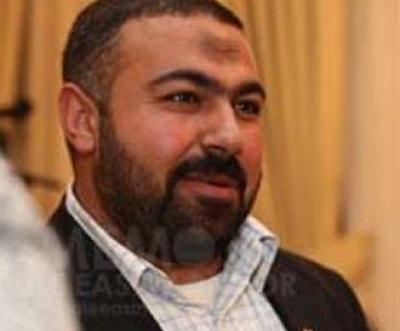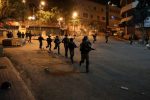Former head of the Israeli National Security Council Yaakov Amidror was asked by Army Radio today whether the Gaza “problem” has a solution? He referred to the rule of Hamas then answered: “No there is no way to get Hamas out of Gaza without completely defeating it.” But he did not mention anything about his country’s prime minister and defence minister who is not ready for such a mission.
This came about one week after the Israeli Prime Minister Benjamin Netanyahu waged a brutal offensive on the besieged Gaza Strip that lasted only two days and whose stated goal was to deter the Palestinian resistance. Netanyahu did not only get the support of the center and left during his attack but he also received the “100 per cent support” of the strongest country in the world.
“Once again Israel faces a barrage of deadly rocket attacks by terrorist groups Hamas and Islamic Jihad” the American President Donald Trump wrote on Twitter justifying the Israeli offensive by describing it as defense against attack rockets of another state equal with army and power. “We support Israel 100% in its defense of its citizens” he added.
Palestinians and Israelis have different views regarding how quickly Netanyahu’s offensive on the coastal enclave came to an end.
For the Palestinians the continued bombing of Gaza would lead to international pressure on Netanyahu as a result of the civilian deaths which would result from the bombing. “If he continued his attacks he would commit more crimes among civilians and this might arouse an international outcry against him” Waleed Al-Agha a specialist in Israeli affairs told MEMO.
He also said that Netanyahu is afraid that he might not make real achievements if he continued his offensive and this would undermine his position as a faction leader who is designated to form a government.
“He holds the defense ministry and if he lost or at least achieved nothing from such an offensive he might lose the opportunity to form the government” Al-Agha said.
Wisam Afifa editor of the Gaza-based Al-Resalah newspaper said that Netanyahu might have been busy with “something bigger which is Iran and its proxy army – Hezbollah.”
While Mohammad Mardawi said that Netanyahu was shocked with the “qualitative” abilities of the Palestinian resistance and confirmed that this might have been the reason why Netanyahu ended the offensive as quickly as possible.
However the Israeli critic Jonathan Tobin of the Jewish News Syndicate claimed that Netanyahu was trying to save Gaza from the “Islamist tyranny” and this is not his job. So he fails to carry out the mission from time to time and “allows Hamas to periodically terrorize much of the population of Israel without doing anything to put an end to the problem.”
Israeli Professor Yoram Yuval wrote in Ynet News that Netanyahu is a weak prime minister as he is working hard to separate the Gaza Strip from the West Bank in order to “continue claiming that there is no one on the Palestinian side to talk to thereby avoiding any peace arrangement that would require the return of territories and the evacuation of settlements.”
“After we allowed Hamas to grow and entrench itself for more than a decade the cost of ousting it from the Gaza Strip once and for all could be hundreds of dead soldiers.”
But it seems the real reason for Netanyahu’s retreat in Gaza is the reluctance of the Israeli army to enter the coastal enclave. “What do you want from me?” Yuval reported Netanyahu saying. “The army is reluctant to enter into a ground battle and they tell me to improve the conditions in Gaza so that the Gazans have something to lose and that’s what I do.”
The New Yorker’s Bernard Avishay wrote that managing “periodic outbreaks of violence” is the best choice for Netanyahu to deal with such an enemy like Hamas in Gaza. “Netanyahu evidently wants observers to believe that given such an enemy his government has no choice but to manage periodic outbreaks of violence—to ‘mow the grass’ as the common military metaphor has it.”
“But he is also seeding the grass—spreading resentment from which Hamas’s support grows” he warned.
– Motasem A Dalloul is MEMO’s correspondent in the Gaza Strip.











